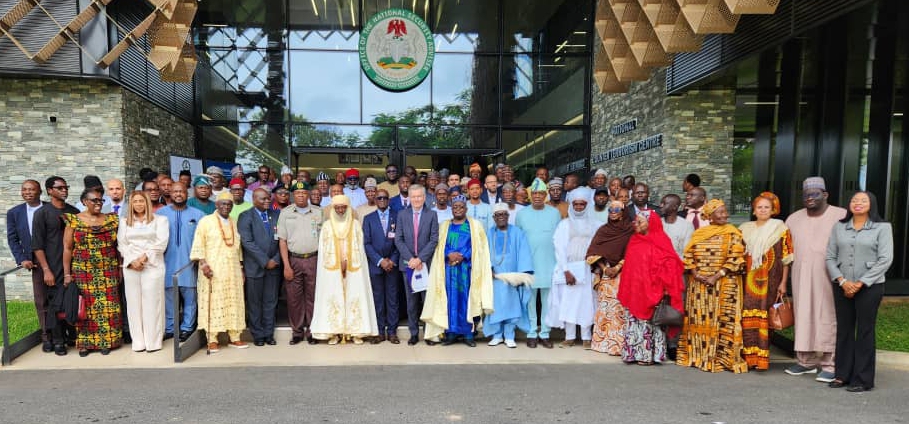By Sumaila Ogbaje
Federal Government has emphasised prevention, human rights and community resilience in its fight against terrorism in the revised Policy Framework and National Action Plan for Preventing and Countering Violent Extremism (PCVE).
The National Coordinator, National Counter Terrorism Centre (NCTC), Maj.-Gen. Adamu Laka, stated this at the validation workshop on the revised policy framework on Tuesday in Abuja.
Laka said the new framework reflects a shared national vision that would guide PCVE efforts for years.
According to him, this validation exercise is not simply about reviewing a document, it is about endorsing a shared vision that reflects our priorities and meets the highest international standards.
He said since the first framework was launched in 2017, Nigeria had made meaningful progress through non-kinetic measures.
These, he noted, included early-warning systems, youth empowerment, counter-narratives, gender inclusion, and stronger collaboration with civil society and religious leaders.
Laka said the revised plan would respond to emerging threats such as socio-economic inequality, online radicalisation, climate pressures and disruptive technologies.
“Nigeria has long recognised that military responses alone cannot defeat violent extremism.
“By confronting the drivers, strengthening communities, and amplifying credible voices, we secure lasting peace,” he said.
NCTC boss stressed that the framework embeds gender and youth engagement, human rights, accountability, and community-based approaches, while ensuring dialogue and education weigh as much as security responses.
In his remarks, the EU Ambassador to Nigeria, Mr Gautier Mignot, said the strategy must be implemented at state and local levels to be effective.
He said it was extremely important to domesticate the national strategy at grassroots level, to improve governance presence and avoid marginalisation.
The Emir of Kaura Namoda, retired Maj. Sanusi Kaura, who represented traditional rulers, said their involvement in the design of the framework made it stronger.
“We stand ready to mobilise our communities and ensure this policy succeeds,” he said.
The workshop, organised by the NCTC Office of the National Security Adviser (ONSA) with support from the EU and Hedayah International Centre, will subject the draft framework to final scrutiny before adoption. (NAN)

